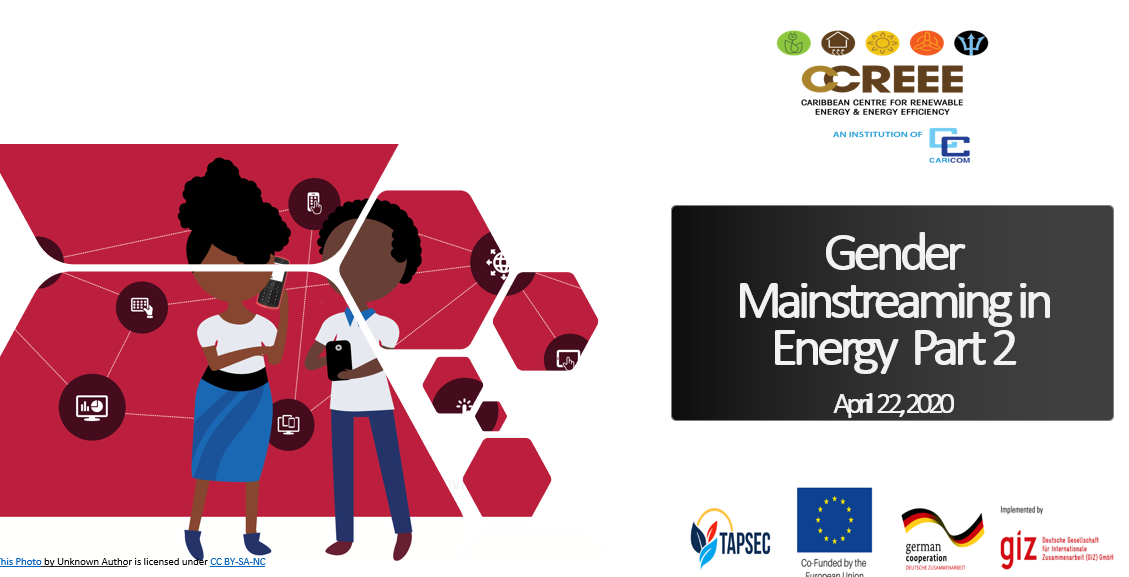
The Caribbean Centre for Renewable Energy and Energy Efficiency (CCREEE) brought together around thirty staff members from varying regional organisations to benefit from training focused on gender mainstreaming in the energy sector.
During the two half-day virtual training sessions, participants came to understand equality versus equity, gender and women’s empowerment in the Caribbean context, intervention design and how staff could apply gender needs assessment tools, in practice. The training provided an opportunity for colleagues to pose queries and have them addressed by experts in the field.
Attendees acknowledged that while many women now work within the energy sector, there are still relatively few in leadership roles and some roles are still seen as reserved for men, based on physical attributes like strength. Discussions also surrounded the practical implementation of gender balance in organisations, and whether this places some competent candidates at a disadvantage.
The workshop was intially envisioned for face-to-face delivery but was re-designed in light of COVID-19 related travel and physical distancing restrictions and protocols. The sessions therefore saw participants utlizing virtual polls and breakout rooms to enhance interaction and learning. Dr Gary Jackson, Executive Director of the CCREEE affirmed during the seminar that women and youth empowerment are critical for the transformation Caribbean people need. He said, “in empowering youth, the creation of an environment that is inclusive of gender, is an absolute necessity.” Participant interventions were also useful with one attendee sharing, “when addressing issues of gender in the energy sector in the Caribbean region, it is critical to view gender through a social and cultural lens, as this could alleviate issues.”
CARICOM Institutions joining the training session comprised of the CARICOM Secretariat Energy Unit, the CARICOM Regional Organisation for Standards and Quality (CROSQ), The Caribbean Community Climate Change Centre (CCCCC) and the Caribbean Development Bank (CDB).